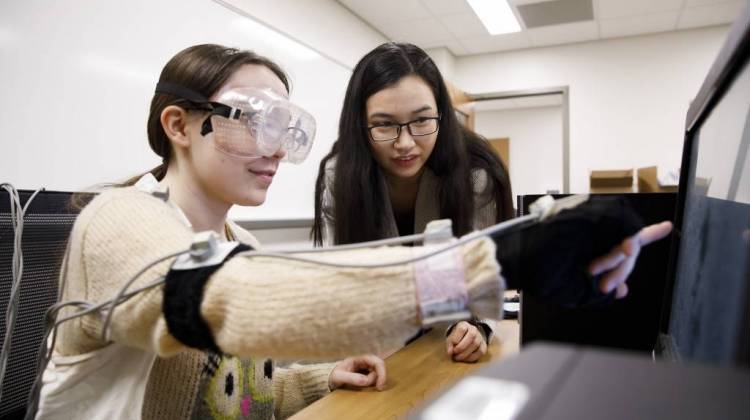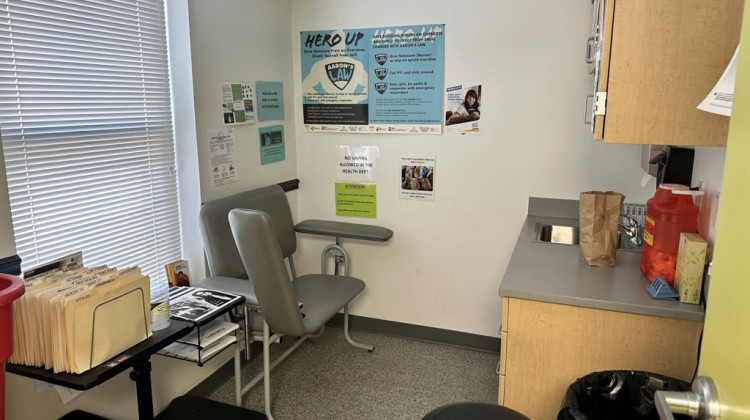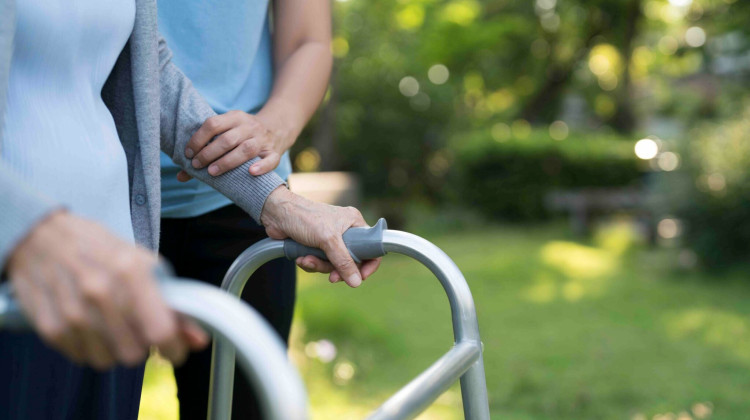
Indiana University graduate student Di Wu observes a test subject.
Photo courtesy of James Brosher/Indiana UniversityA recently published study that Indiana University researchers co-authored provides the best evidence yet that movement could be used as a biomarker or a physical measurement that doctors can use to diagnosis. The findings focus on autism.
Diagnosing autism remains dependent on a subjective assessment of a person’s symptoms. IU physics professor Jorge Jose says that can be a problem.
“Because there are many of the same symptoms that can correspond to different conditions,” he says.
Jose is a senior author of a study conducted by IU and Rutgers University researchers. It builds on work they’ve done to record and analyze arm movements as a biomarker for autism.
Di Wu, an IU doctoral student says movement differences wouldn’t be noticed with the naked eye. They used high-speed sensors.
“It actually was a surprise to us that when you zoom in there is so much difference in the single motion’s movement,” says Wu.
The study correctly identified people with autism and could also help assess severity levels of the disorder.
Jose says the research could also lead to the development of an autism application.
“You might actually be able to do these movement tests to tell you if there is any signal there, that something is not quite right,” Jose says.
A movement measurement could also aid in early diagnosis, which is an important factor in autism treatment.
 DONATE
DONATE









 Support WFYI. We can't do it without you.
Support WFYI. We can't do it without you.